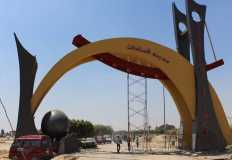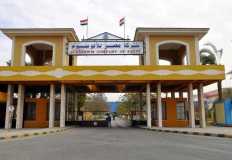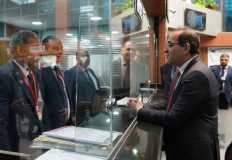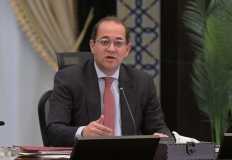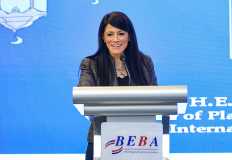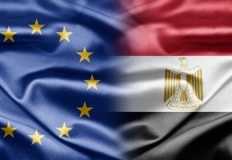
Alaa Farouk, Minister of Agriculture and Land Reclamation, discussed with Dr. Magdy El-Sayed, Chairman of Mivac Egypt, ways to increase the productivity of veterinary vaccines, localize their manufacturing technology in Egypt, and export them abroad.
The meeting was attended by Dr. Saad Moussa, Supervisor of Foreign Agricultural Relations, Dr. Mohamed Saad, Director of the Veterinary Serum and Vaccine Research Institute, and Dr. Ahmed El-Kady, CEO of the company.
The Minister of Agriculture emphasized President Abdel
Fattah El-Sisi's directives to localize technology for industries in Egypt that
are currently imported, noting that this contributes to achieving added value
to the national product, bringing in foreign currency, reducing the import
bill, and providing job opportunities.
Farouk stressed the need for a comprehensive survey of
veterinary vaccines used in Egypt, advocating for the localization and
expansion of vaccine manufacturing. He affirmed state support for the private
sector, pledging to provide necessary facilities and remove obstacles. He
commended Mivac's role in producing and localizing veterinary vaccine
technology, essential for safeguarding livestock, poultry, and fish resources
from diseases.
Dr. Magdy El-Sayed detailed Mivac's production volume,
highlighting the company's significant 5 billion Egyptian pound investment from
Egyptian, American, and Arab sources, including the Arab Authority for
Agricultural Investment and Development. Established in 2008 and operational
since 2011, Mivac has successfully developed and produced over 77 livestock
vaccines, safeguarding animals from critical epidemic diseases.
El-Sayed added that the company's factories operate through
more than four production lines for various vaccines, with a production
capacity exceeding 4 billion doses by 2024.
Mivac is currently expanding its production capabilities,
with plans to operate additional lines and achieve a production capacity of 12
billion doses by 2025-2026, primarily for export purposes. The company has
successfully registered and sold its products in more than 40 countries across
Africa, the Middle East, Asia, Eastern Europe, and Latin America, solidifying
its position as Egypt's top veterinary vaccine exporter and generating
thousands of direct and indirect jobs. They project expanding their market
reach to over 60 countries by the end of this year. Mivac will also open a new
factory in the Salheya area, in collaboration with local and international
shareholders, to further expand its serum and vaccine production.
The Minister of Agriculture concluded the meeting by instructing the Veterinary Serum and Vaccine Research Institute and Mivac to develop a cooperation protocol and increase export quotas to African nations, in line with Egypt's broader strategy of fostering cooperation with African partners in the veterinary vaccine sector.
